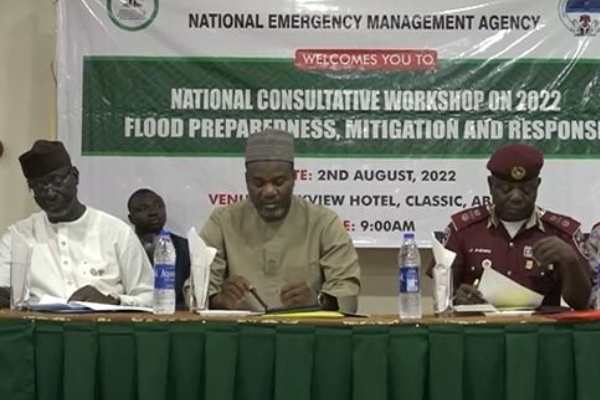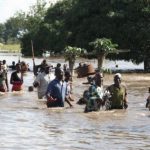Heads of state emergency management agencies on Tuesday, met with zonal coordinators from the National Emergency Management Agency (NEMA) from all over the country and the Federal Capital Territory to discuss strategies for preventing the severe flooding predicted by the Nigerian Meteorological Agency in its seasonal climate prediction for 2022.
This forecast is contained in the Annual Flood Outlook of the Nigeria Hydrological services Agency, released in May, 2022
Flooding is forecast in 233 Local Government Areas throughout 32 States and the FCT, with moderate flooding expected in 212 Local Government Areas across 35 States.
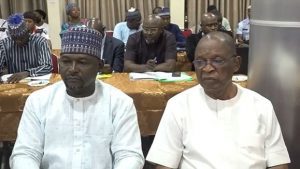
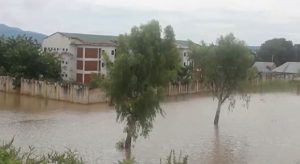

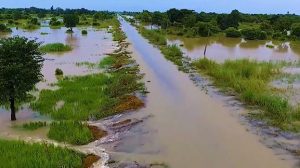
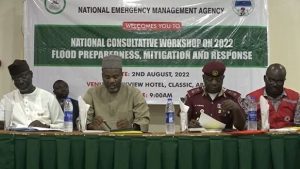
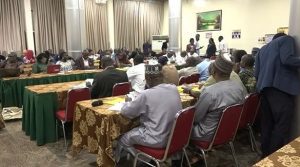
The National Emergency Management Agency believes that raising awareness about the 2022 flood projection is necessary in order to minimise and enhance resilience against floods and other climate disasters.
The floods of 2012 were among the worst that Nigeria has ever seen. That of 2018 also came close.
The country was believed to have lost more than 16 billion dollars as a result of the calamity.
[wonderplugin_video iframe=”https://youtu.be/qPZfLE1Mg9o” lightbox=0 lightboxsize=1 lightboxwidth=960 lightboxheight=540 autoopen=0 autoopendelay=0 autoclose=0 lightboxtitle=”” lightboxgroup=”” lightboxshownavigation=0 showimage=”” lightboxoptions=”” videowidth=600 videoheight=400 keepaspectratio=1 autoplay=0 loop=0 videocss=”position:relative;display:block;background-color:#000;overflow:hidden;max-width:100%;margin:0 auto;” playbutton=”https://www.tvcnews.tv/wp-content/plugins/wonderplugin-video-embed/engine/playvideo-64-64-0.png”]
Severe flooding was reported in 34 of the 36 states, prompting the federal government to proclaim a state of emergency in nine of them, with an estimated 82,000 homes destroyed and over 200 thousand people evacuated.
In its 2022 seasonal climate prediction, the Nigerian Meteorological Agency predicted normal to above-average annual rainfall amounts, while the Hydrological Services Agency forecasts flood scenarios in several sections of the country.
Acting Director, Planning Research and Forecasting, NEMA, Fatima Kasim, stated at the meeting that with adequate planning, rainfall flooding could be controlled.
Nigeria’s economy and food security have both suffered significantly from insecurity, and now flooding poses a serious threat to everyone’s health, social life, environment, and efforts to achieve the 2030 Sustainable Development Goals.

